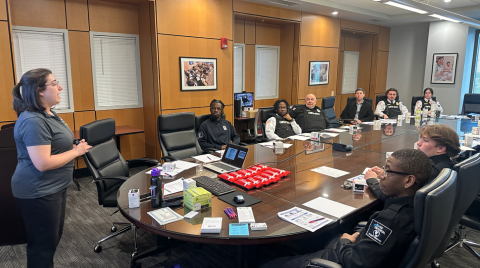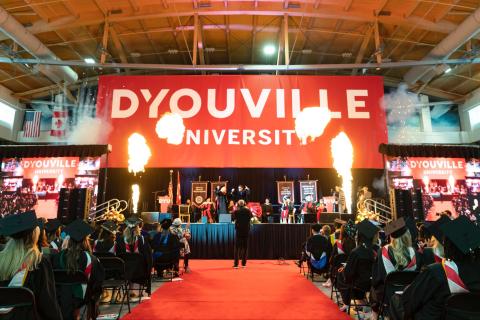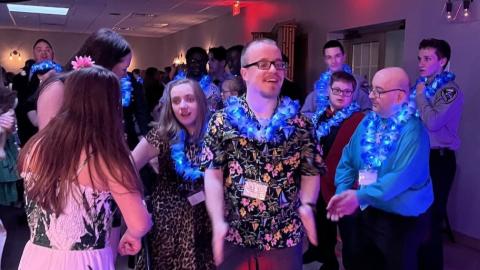
Occupational Therapy
Occupational therapy helps individuals regain and build skills that are important for their health, well-being, safety and daily living.
Five-Year Combined Degree
Three-Year Master's Degree
Online Program
Connect with the D'Youville Occupational Therapy community on Social Media
Our online application is free and easy to submit.
Fieldwork
Our Occupational Therapy program provides local and international fieldwork experiences for students, made possible by clinical partnerships with over 300 centers.
D’Youville offers a five-year occupational therapy program leading to a combined bachelor’s and master’s degree featuring strong professional involvement and an ongoing curriculum review. The Master of Science degree in occupational therapy is an entry-level degree created for students with a BA or BS in another area of study. The three-year degree program includes courses in occupational therapy theory and practice, six months of supervised fieldwork, and research.
We welcome you as a clinical fieldwork coordinator and/or fieldwork educator for students in the D’Youville Occupational Therapy programs. We appreciate the time and expertise you bring to the fieldwork experience and hope that the materials contained in this website will be useful to you.
Please take the time to become familiar with this information. We welcome any feedback you may have and encourage you to contact us if you have any questions. We look forward to a successful and ongoing educational alliance with you and your facility.
Mission
The Occupational Therapy (OT) Department provides innovative occupation-based programs with a faculty of scholars and clinicians dedicated to developing highly respected, dynamic practitioners, and professional leaders.
D'Youville's Occupational Therapy programs prepare students to assume these roles within educational, medical, and community-based settings. Emphasizing theory, scholarship, clinical skills, and professionalism, the programs foster competencies to meet the challenges of serving people in an ever-changing global environment.
Explore the degrees offered at D'Youville. Find a program that will lead to your success in the classroom and after graduation.
Visit to learn more about our exceptional academic programs. Take a campus tour and meet faculty and students. Maybe sit in on a class.
With our centrally-located student center, answers are always nearby - whether you're ready to enroll or about to enter your career.


